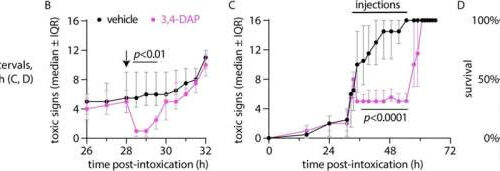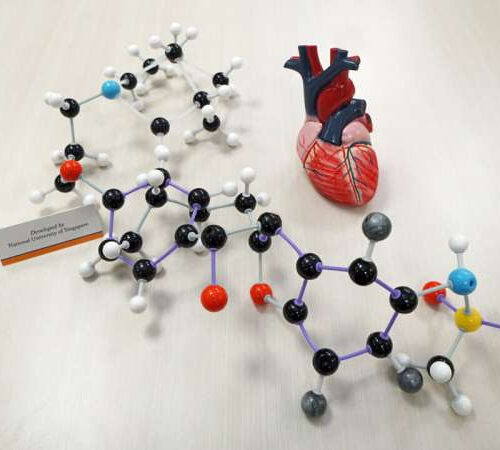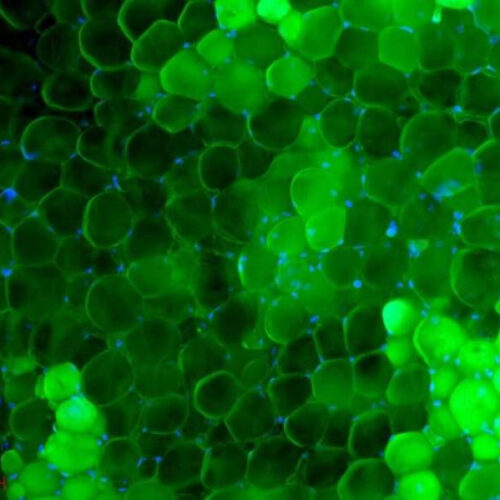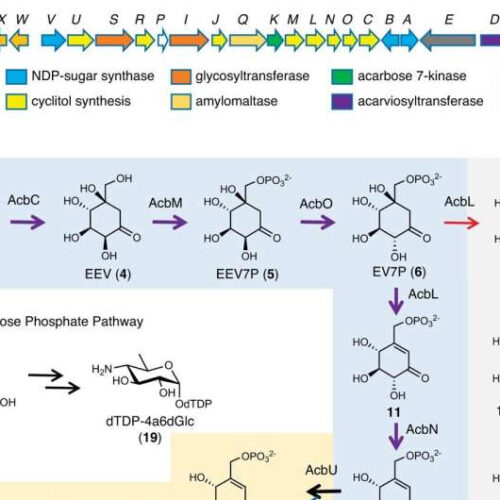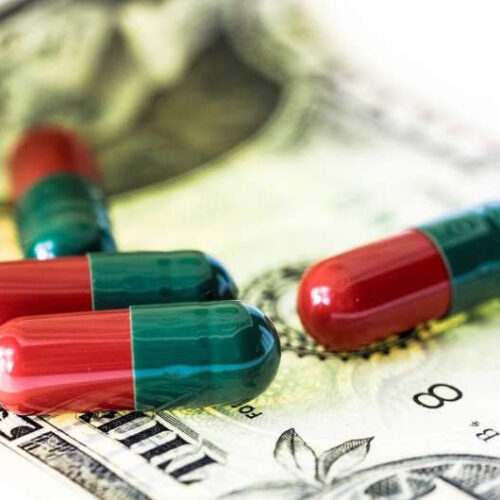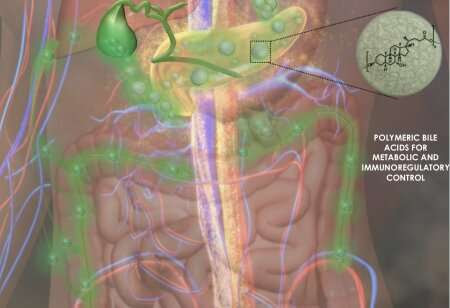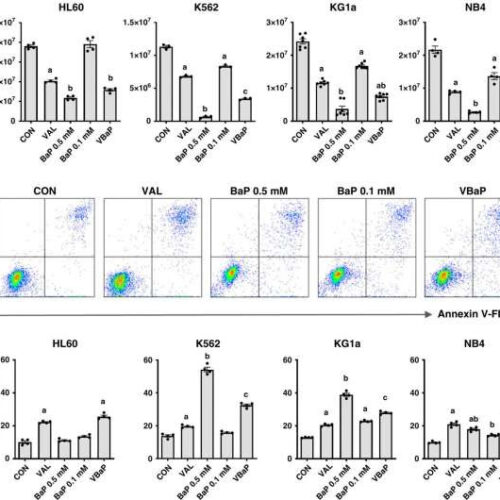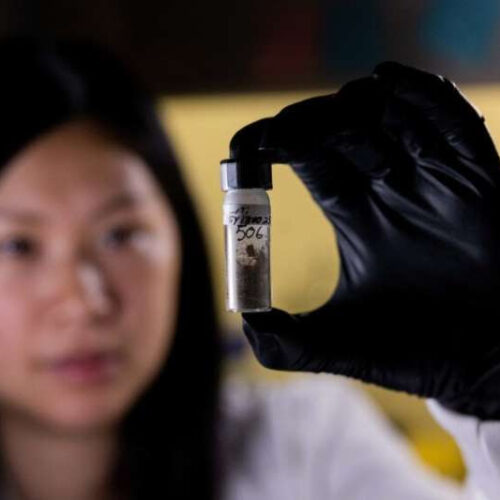by Atrium Health Wake Forest Baptist Bolus administration of 2 mg/kg 3,4-DAP reverses clinical signs of botulism and prolongs survival. A Summary of experimental models. B Median ± interquartile ratio (IQR) toxic signs for rats given a single injection of vehicle (black) or 3,4-DAP (pink) at 28 h after challenge with 0.44 ng/kg BoNT/A (2.5 LD50 BoNT/A; n = 4 per group)....
Tag: <span>Drug</span>
New drug molecule for treatment of atrial fibrillation
by National University of Singapore Molecular structure of poyendarone, a new drug candidate for the treatment of atrial fibrillation. Credit: National University of Singapore Scientists from the National University of Singapore (NUS) Department of Pharmacy have developed an improved pharmaceutical drug for the treatment of the most common heart rhythm disturbance—atrial fibrillation (AF). The 8-member research...
Towards a new drug class in the treatment of type 2 diabetes
by Institut National de la Sante et de la Recherche Medicale Mouse visceral adipose tissue fluorescently labeled with AdipoRed. Nuclei are stained blue. Credit: Vincent Marion. Type 2 diabetes is a major public health problem that affects millions of people worldwide. Developing new drugs to help better treat its underlying causes is therefore a research priority....
Research reveals how key diabetes drug is made in nature
by Steve Lundeberg, Oregon State University Acarbose biosynthesis in Actinoplanes sp. SE50/110. a Acarbose biosynthetic gene cluster from Actinoplanes sp. SE50/110; b Proposed acarbose biosynthetic pathways. The thick purple arrows (shaded in blue) indicate steps that have been characterized biochemically prior to this study. The blue and red arrows indicate previously proposed pathways. The thick black...
Stalled Alzheimer’s drug may find new purpose against superbugs
By Michael Irving January 12, 2022 Researchers have repurposed an experimental Alzheimer’s drug to fight antibiotic-resistant bacteria credit: ktsdesign/Depositphotos Our antibiotics are failing in large numbers, threatening a future “dark age of medicine” where once-simple infections become lethal again. A team of scientists has now found a way to restore common antibiotics to their former...
US drug prices are costing us more than we think
by Neil Schoenherr, Washington University School of Medicine in St. Louis Credit: Pixabay/CC0 Public Domain Aduhelm, the first new Alzheimer’s drug in 18 years, could easily become the best-selling drug in Medicare, despite its potential massive cost and tremendous uncertainty about whether the drug even works, says Rachel Sachs, the Treiman Professor of Law and nationally...
Many people with high blood pressure may take a drug that worsens it, says study
by Denise Mann Healthday Reporter Nearly 1 in 5 people with hypertension may be unintentionally taking a drug for another condition that causes their blood pressure to climb even higher, a new study suggests. Left untreated or undertreated, high blood pressure will increase your risk for heart attack, stroke, kidney disease, and vision problems by...
A drug that does double duty in treating diabetes
by Yale University Credit: Yale School of Engineering and Applied Science Yale researchers have developed an oral medication to treat diabetes that controls insulin levels while simultaneously reversing the inflammatory effects of the disease. The results were recently published in Nature Biomedical Engineering. Developed by Tarek Fahmy, associate professor of biomedical engineering, the drug has two critical...
Triple-drug combo could prove key weapon in fight against cancer
by University of Birmingham Fig. 1: VBaP kills AML cell lines. a HL60, K562, KG1a and NB4 cells were treated with vehicle control (CON), 0.6 mM Valproic acid (VAL), 0.5 mM BEZ and 5 μM MPA (BaP 0.5 mM), 0.1 mM BEZ and 5 μM MPA (BaP 0.1 mM), the combination of Valproic acid 0.6 mM and BaP 0.1 mM (VBaP) for 7 days with...
Scientists discover a new cancer-driving mechanism, develop new drug to treat it
by Tyler Stahle, Brigham Young University Ph.D. graduate, Dr. Tsz-Yin Chan, who studied TNK1 alongside BYU professor Dr. Josh Andersen for the past six years, holds a vial of the newly created drug that is now ready for clinical trials. Credit: Jaren Wilkey/BYU Photo Another important step in the fight against cancer has been enabled thanks...

